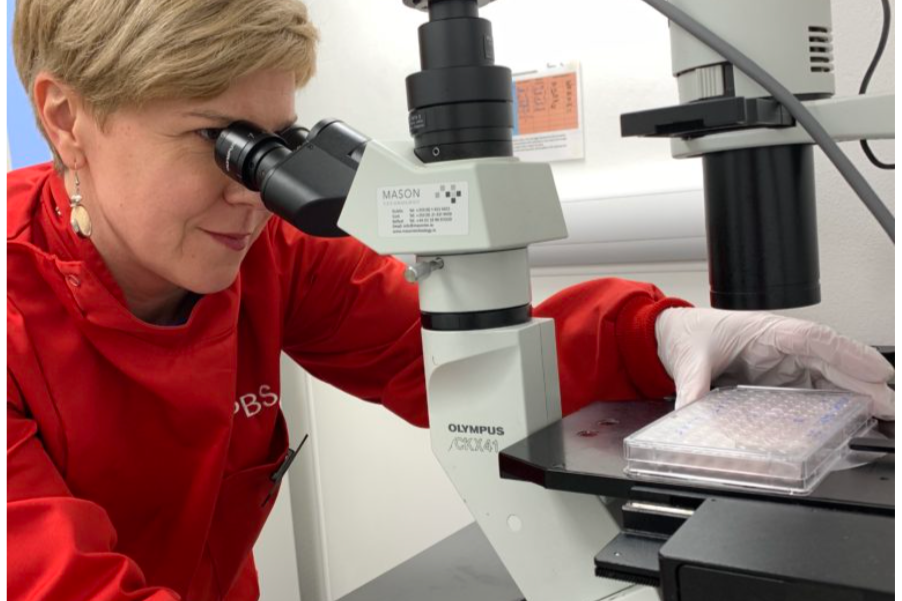Latest News, Grants & Research Reports
Read our latest news, blog posts and research updates right here

Researchers investigating mRNA Vaccine to treat Childhood Cancer
As part of Neuroblastoma UK’s 2024 Grant Round, Dr. Olga Piskareva, alongside an international team of researchers received £208,887 to conduct research into the mRNA vaccine.

New Project to Improve Availability of Scanning Drugs, Reduce Hospital Time and Improve Radiation Dosage for Children with Cancer
As part of Neuroblastoma UK’s 2024 Grant Round, Professor Steve Archibald and his team at King’s College London received £268,301 to conduct research into improving the availability of scanning drugs to optimise radiation dose administered in children with neuroblastoma.

Blood-tests for neuroblastoma clinical trials to guide next-generation cancer treatments.
In 2021, Neuroblastoma UK awarded £469,093 in research funding to an international team of leading clinician-scientists to explore how blood tests (biomarker testing) could be used in clinical trials to improve outcomes for children with neuroblastoma.

Neuroblastoma UK Awards £1.1 Million in 2024 Grant Round
Neuroblastoma UK is awarding £1.1 million in its 2024 grant round to fund new innovative research into neuroblastoma. New therapeutic approaches, pathways to improve existing treatments and exploration of an MRNA vaccine are just some of the projects to be funded in the 2024 grant round; with an emphasis on translational research which can be rapidly transferred from the lab bench to bedside.

Research partly funded by Neuroblastoma UK leads to an innovative stem cell model providing insight into childhood cancer origins
Researchers from the University of Sheffield and St. Anna Children’s Cancer Research Institute have created a model designed to investigate the origins of neuroblastoma, a cancer primarily affecting infants and young children. The findings offer hope for the creation of tailored treatments which treat aggressive neuroblastomas and minimise the adverse effects experienced by patients from existing therapies.
Encouraging results from the study investigating the role of Enhancer of Zeste homolog 2 (EZH2) and Natural Killer cells in Neuroblastoma
In 2023, Dr Gao, working with Prof Juliet Gray and Dr Zoë Walters at the University of Southampton, aimed to determine the role of natural killer cell- mediated anti-tumour effects in neuroblastoma, after treatment with EZH2. The objectives of the study were to look at the correlation between EZH2 protein expression and the surface expression of natural killer ligands in neuroblastoma cells, and to determine if the natural killer cells induced cytotoxicity that could be enhanced in the neuroblastoma cell lines with EZH2 inhibitors.
Research Grants - a 2022 update
This year we reviewed the current results of the research initially funded by Neuroblastoma UK from 2010 to 2017. Our Symposiums over the last ten years have brought together researchers to share their work and highlight topics, examples are: new treatments, advances in differentiation therapy, genetic landscape of neuroblastoma , the role of MYC gene and micro RNA signatures.

From molecules to medicine: new funding to accelerate rare childhood cancer research
Thanks to your kind donations, Neuroblastoma UK is pleased to announce two research grant awards totalling £683,477, with a focus on improving treatment for children with advanced stages of the disease.
The grants, which include a donation of £15,000 from charity Friends of Rosie, will enable scientists to progress their research and develop safer, non-invasive and more effective treatment for children with the disease.

Neuroblastoma UK announces new 2021 Grant Round
We are delighted to announce the launch of our new research Grant Round for 2021.
Postponed from 2020 due to the coronavirus pandemic, our biennial grant round for 2021 will focus on applications for research that will have the greatest potential impact to improve treatment for children with neuroblastoma.
Developing personalised treatment for ALK-positive neuroblastoma
Thanks to funding from Neuroblastoma UK, post-doctoral research associate Dr Perla Pucci was recruited to join a neuroblastoma research team at the University of Cambridge.
The team, led by Dr Suzanne Turner, are looking to develop more personalised treatment for children with ALK-positive neuroblastoma. Perla tells us more about how the project has progressed.
